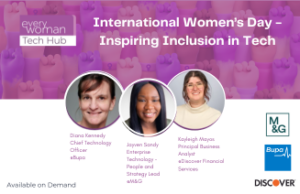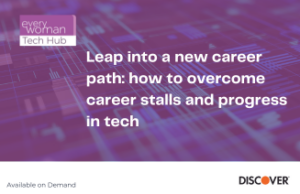
As Head of Marketing Analytics at Bupa, Nikki Ha is using data to drive the next generation of private healthcare. Over a 20-year career she has seen data evolve from an afterthought to something at the heart of every forward-thinking business decision — and at Bupa, these data-driven solutions are part of its drive to create a truly customer-centric experience for its clients.
We talk to her about how data analytics is revolutionising the way businesses understand and communicate with their customers and how it can help create a more inclusive, effective healthcare system.
How have you seen data grow in importance over your career?
I’ve worked in marketing and data analytics for over 20 years now, previously in financial services and now in healthcare. And through my career I’ve seen data change hugely in its importance; people now talk about data being ‘the next oil’, and an asset to each company. Twenty years ago, nobody viewed it like that. It would have been something that we gathered and created some reports off the back of, and if the company was sophisticated it might then mine it for some insights. Nowadays, though, it’s embedded into a company’s DNA and it’s certainly a key part of the Bupa strategy to become the most customer-centric, data-driven healthcare company in the world.
How is data driving business solutions in healthcare?
There are two aspects to it — it’s about ensuring that customers get the right treatment at the right time. And from a marketing perspective it is all about getting the right message to the right customer at the right time. We have what we call insight health events and those are data-driven in terms of who we should be targeting when we invite specialist GPs in to talk about certain topics, such as mental health or menopause. We also use a lot of AI to automate a lot of the manual processes within healthcare such as authorising claims, which machine learning algorithms can process a lot faster. But even within that innovation piece, data is still driving the evolution of machine learning and AI.
Can data help create a more inclusive marketplace?
Most companies have vast amounts of data and over the years have tried to use that data to support their business decisions through marketing or product development. But data has also made it possible for more voices and perspectives to be served by companies now, including areas of the market that might have been less visible due to unconscious bias perhaps. Data has enabled us to understand our customer base and their needs better and to be supportive of everybody. For example, there may be distinct patterns in the data that say, rather than thinking about product development or creating new services, we actually need to do x, y and z, because there’s a cohort who we’re not serving here with our current services. Data basically tells you where the opportunities are.
How is data influencing women’s healthcare for Bupa?
We’ve used data to support lots of new propositions and understand customer needs. Bupa is a healthcare company, expanding into thinking more holistically around wellbeing and how to support that — and as part of that we launched a mental health plan a couple of years ago and we have recently launched a new menopause plan and new period plans. We’re trying to step away from the idea of people just coming to Bupa when they’ve injured themselves or need hospital treatment and be here to support their overarching wellbeing through the different things a person might go through in life. The proposition around the menopause plan was based around a need — and you don’t need data to tell you that there was a gap in the market — but it does help to create the business case.
How can we encourage more women to explore data analytics as a career?
Even though overall data analytics is still male-dominated, my team is actually 50:50, and I suspect that’s partly because while the role is an analytical one, there’s a marketing aspect to it and for some reason marketing roles are still female-dominated. I think many women need to understand what they’re doing with the data rather than just focus on the pure technicality to open the role up to them. That’s why, especially within marketing, I recruit insight analysts — it is not advertised as a purely technical role, it’s more about the outcomes. In reality, it requires the same technical skillset — you still need to be able to extract and analyse data, but my focus is around making sure that we create the insights and make the recommendations and how to use those insights to drive business value.
What do women need to develop if they’re looking to create a career in data analytics?
From a data perspective or in an analytical role, you will obviously need to have an ability to analyse data. But that aside, it’s about having the curiosity and determination to really understand and question what’s driving certain activities and behaviours, then really dig into the data to find answers. It’s also about being able to ‘tell the story’ that is within the data and I’ve even seen some job specs now where they call it ‘data storyteller’.
In your own career, what has been the biggest opportunity and biggest challenge?
The biggest opportunity for me was also my biggest challenge and that was coming back from maternity leave after my first child. My manager at the time, who was Head of Analytics, pulled me aside on the first day back and told me he’d resigned and proposed I take his role. My first reaction was, ‘I don’t think I can do this’. I had just had a year off and my brain was still in baby mode, and having had one big life change I obviously had doubts because just returning to work seems hard enough after maternity leave. I think you do need to push yourself now and again though and I felt it was just too good an opportunity to say no to. There’s a quote from Einstein around failure being success in progress. And I always remember that. It’s all a learning curve and I knew I could do it deep down. Coming back from my second mat leave, though, I had a totally different experience when I was made redundant from the same job! That was difficult, but positive things came out of it too. I actually took a bit of time out then and spent time with my child and that helped me refocus and look into new areas — which led me to the amazing role at Bupa I’m in now.
Why do we need more women in data analytics?
Whatever industry you’re in, that diverse perspective in the business is vital as is ensuring that voices are heard across the board. A woman might see things slightly different to a man when you’re looking at analytics. They might see things in the story that we’re trying to tell a little bit differently in the data, while men often look at things in more technical terms. Data is data, but it’s also how you interpret it — here it’s around the storytelling and how we connect with customers and tell that story. Modern data science is where analytics is heading, and I am recruiting for data scientists at the moment, but today, I looked at seven CVs and they were all from males. For women thinking about entering the industry my advice is don’t be put off by this. Yes, it can be a male-dominated area, especially when the work becomes more data science-focused, but everyone is capable of doing this role. It’s more about the qualities you bring to it, so don’t be afraid to go for it.



